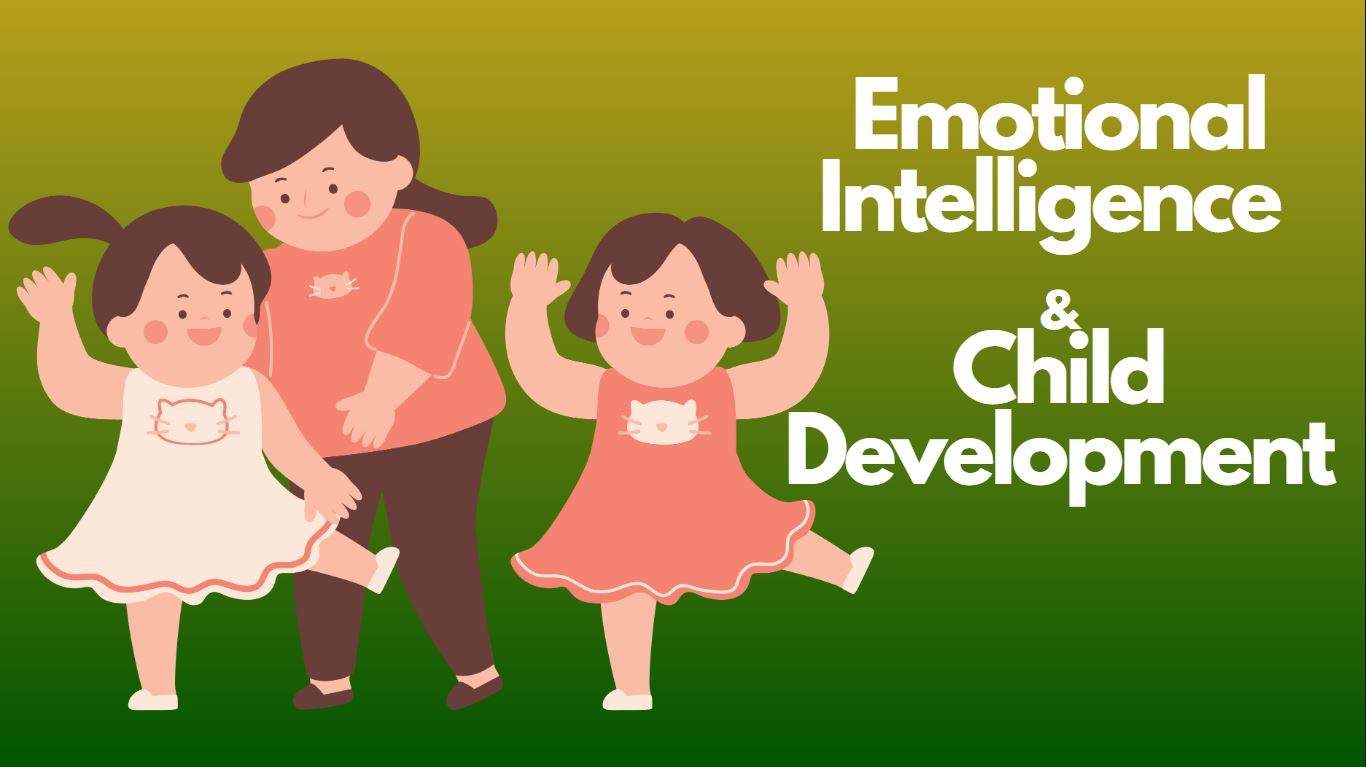- Likes
- Followers
- Followers
- Followers
- Subscribers
- Followers
- Members
- Followers
- Members
- Subscribers
- Subscribers
- Posts
- Comments
- Members
- Subscribe
The Role of Emotional Intelligence in Child Development

Emotional intelligence as a critical element in child development lays a very strong foundation of the life path of kids on survival. It aids them in their pathway to becoming a whole person who is calm, empathetic and a socially skilled individual. This article will be examining what emotional intelligence, why does it play a crucial role in child’s well being and how both educators and caretakers can develop it better.
What Is Emotional Intelligence?
This extraordinary quality, which we label as emotional intelligence, reveals the competence to identify, understand, control and if necessary, turn one’s feelings into one’s own advantage as well as sensing what the other person is going through emotionally. Overall, I think this strategy could be summed up in four main steps, as follows-
1. Self-Awareness
Self knowledge is the ability to identify and recognize your feelings and self-control completely and reflect upon how these emotions impact your thoughts and how you conduct yourself.
2. Self-Management
The term self management is described as being the ability to handle and control emotions responsibly with which stressing can be managed and impulses can be controlled. Behavior management involves being self-disciplined life.
3. Social Awareness
Empathetic and understanding of others are the social skill that enable you to identify other people’s emotional states and recognize their needs. That way, you will be able to foster empathy and improve your ability to socialize. This does not only reduce the conflicts in relationships, it also provides the people with the means to live.
4. Relationship Management
Social interaction, conflict resolution, and effective communication with others are the notions dealt under personal and professional responsibilities (i.e. Relationship management).
Why The Personal Intelligence Is Often Overlooked In The Human Development Of A Young Generation?
1. Enhanced Social Skills
Personality of children often involves their ability to read the emotions of others and so, the ones with high emotional intelligence, usually have better social skills. They can make deep, strong friendships with other classmates and work as a team equally well.
2. Improved Academic Performance
The combination of emotional intelligence reduces the classroom disorder, gives rise to fruitful problem solving, and also promotes the excellence in academic performance.
3. Better Mental Health
The practice of social and emotional skills enhances children’s ability to deal with stress, anxiety, and emotional adversities that enable the kids to have an improved emotional status.
4. Empathy and Compassion
Posts You May Like
Those kids who are emotionally intelligent have enhanced capacity for empathy and feeling cares of other people. They are able to take in the lonesomeness of people around them, know how they are feeling, and understand what they need.
5. Conflict Resolution
Cognitive intelligence teaches children to settle conflicts with the aid of peaceful and constructive methods and hence alleviates the possibility of bullying and aggressive behavior.
How To Nurture Emotional Intelligence In Children?
1. Model Emotion Regulation
They don’t acknowledge the role model, children imitate them. Teachers and parents can show how to deal with emotions in a healthy way by the example of speaking out the problems and revealing how to bounce back in the adverse moments.
2. Encourage Expression
Make a place where the kids feel confident and see nothing wrong with openly talking about their inner tides. When their emotions start expressing themselves, it first of all will boost their family unity and confidence in themselves. By the time you initiate them into talking of their feelings and issues, all in all, they will come out with the positive side and live on with their healthy minds.
3. Teach Empathy
Help to elucidate on the emotional state and the way it influences others. Ask children to reflect sensitively about how their actions inflect people around them. Such qualities can only be built by an act of compassion; which, in turn, would be formed through a high degree of emotional intelligence.
4. Problem-Solving
Build the ability in youths to solve problems by asking questions, identifying issues, coming up with solutions, and utilizing them. When they are now trained with a mindset of solving the problems they will start thinking the good side in all situations of life. They can effectively start handling every odd situations easily.
5. Practice Active Listening
Show kids that listening attentively without interrupting does increase an emotional atmosphere, and it serves their purpose of comforting the distressed situations. This makes them respectful and sympathetic. As soon as they will develop strong power of listening they will not only analyze the things but they will also view them positively.
6. Use Literature and Media
Taking the time to read books or watching TV series or movies, which dive deep into emotions. Discuss their feelings and the effects of their emotions. They are the mighty instruments which now determine our moods to the depressing lows and even heights of ecstasy.
In Conclusion
Emotional intelligence is a key to the child’s development. It teaches kids the necessary techniques to manage life’s intricacies, create mutually beneficial personal relations, and excel at their studies. Through the promotion of human intelligence, parents, teachers, and guardians can empower the mentally emotional abilities of their children so that they can be more emotionally conscious, socially adequate, and resilient human being.
Image Design Credit- Canva


Comments are closed.